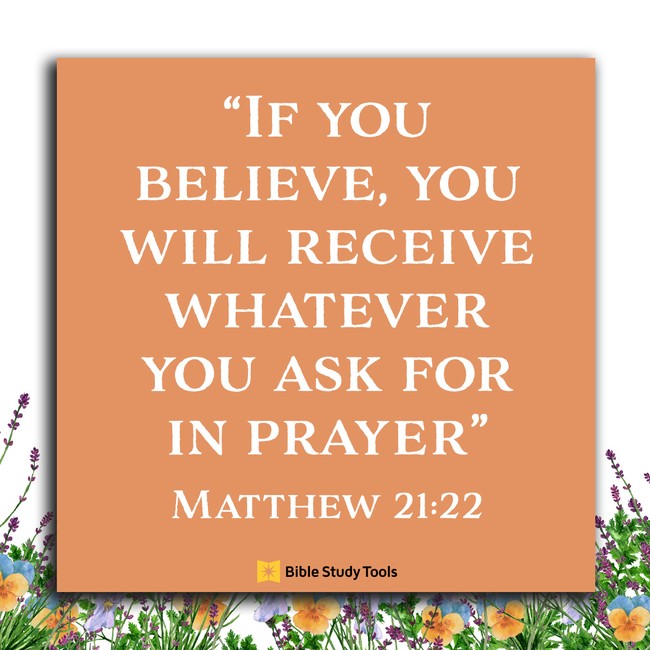Accept the presence of thorns, but let the rose inspire you. Steve Pavlina – Self-Help Author – Speaker

 |
One Brick At A Time
By Tia McCollors
And whatever you do, do it heartily, as to the Lord and not to men, knowing that from the Lord you will receive the reward of the inheritance; for you serve the Lord Christ. – Colossians 3:23-24
We’ve been cultivated to operate in a fast-paced society where rushing and multi-tasking is sometimes a necessity. While at work we mull about dinner plans or make calls to our children’s schools. We rush home through traffic to assist with homework, start a load of laundry, cook (or burn!) dinner on the stove, while finding clothes to iron for everyone for the next day. Rush. Rush. Rush.
Problems can arise when we take the same mindset into the dreams and the visions God has given us. We often get antsy and start to rush when God gives us an assignment. As we pace ourselves and do our part, God has worked out the perfect timing for everything. It’s okay to take time to enjoy the process of building a business, a family, a relationship, and a legacy as He instructs us. God was very specific in his instructions to Nehemiah. When Nehemiah first arrived at the dilapidated walls of Jerusalem, he surveyed what had to be done. Next he gave the people specific assignments according to their families, regions and skills. Nehemiah summoned help from God and the people, and ultimately the broken walls were rebuilt in only 52 days.
Practical application: We can’t do it all. Adam had Eve. Ruth had Naomi. Even Jesus used the strengths of the twelve disciples to help Him fulfill the charge of the Great Commission. Sure, it’s an overused cliché, but teamwork really does make the dream work! With time, patience, and the right support, you can build your dream one brick at a time.
Prayer: Lord, send people to my inner circle who will support my dream and run with the vision. Thank you for showing me the people that I already know who have invested in my life. May our work be done first and foremost with You in mind.
Tia McCollors is a wife and mother who loves to encourage women to wear their faith like a designer label. Information about her inspirational novels and devotions can be found at ![]() www.tiamccollors.com.
www.tiamccollors.com.

 |
THE POWER OF GOD’S WORD
For the word of God is living and active. Sharper than any double-edged sword, it penetrates even to dividing soul and spirit, joints and marrow; it judges the thoughts and attitudes of the heart. ![]() Hebrews 4:12
Hebrews 4:12
Jesus is our best example of dependence on the written Word of God. He quoted scripture repeatedly. When Satan tempted Him in the wilderness, for example, He quoted scripture in answer to each of Satan’s demands (![]() Matthew 4:1-11). Jesus based His teaching on the Old Testament Scriptures and referred to them frequently for historical examples. It can be said that Jesus authenticated almost every book in the Old Testament by quoting from it at least once as divine authority!
Matthew 4:1-11). Jesus based His teaching on the Old Testament Scriptures and referred to them frequently for historical examples. It can be said that Jesus authenticated almost every book in the Old Testament by quoting from it at least once as divine authority!
It is especially interesting to note how Jesus used the scriptures after His death and resurrection. While walking with some followers on the road to Emmaus, He began “with Moses and all the Prophets” explaining “…to them what was said in all the Scriptures concerning Himself” (![]() Luke 24:27).
Luke 24:27).
The central place scripture held for the early church is evident throughout the book of Acts. Scripture was used to explain the events of Pentecost (![]() Acts 2:16-21), to identify Jesus as the Messiah (2:25-28), to determine their reaction to persecution (4:23-26), to state the church’s position in the face of persecution (7:1-53), to preach Christ (8:29-35), and to determine how to accept Gentile believers (15:13-21).
Acts 2:16-21), to identify Jesus as the Messiah (2:25-28), to determine their reaction to persecution (4:23-26), to state the church’s position in the face of persecution (7:1-53), to preach Christ (8:29-35), and to determine how to accept Gentile believers (15:13-21).
There are literally hundreds of examples of New Testament Christians and the writers of the epistles using the Old Testament Scriptures to prove their positions. In fact, it is so basic to sound biblical teaching that it is still common in evangelical circles today. The Bible is our true source of divine knowledge.
Outside the city of Seoul, Korea stands the memorial to the martyrs of the Korean church. Interestingly, the first picture in the gallery is of a Welshman, R. J. Thomas. We learned about him earlier as he gave his life taking the Bible into northern Korea in 1866. The nephew of a scholar became a Christian by reading a gospel portion plastered on the compound wall of the man who killed Thomas. The young man reportedly helped a Scottish missionary, John Ross, make the first translation of the New Testament into Korean in Shenyang, China a mere twenty-five years later. This led to the first group of believers in the country of Korea even before foreign missionaries arrived. The Word of God is powerful!
RESPONSE: I will treasure God’s powerful and living Word, today.
PRAYER: Thank You Lord for the power of Your Word! May it impact North Korea anew in my generation.

 |
The Wise Woman of Abel
Her character: Rather than passively waiting for someone else to save her city, she had the wisdom and courage to act quickly and decisively.
Her sorrow: That her city, though faithful to the king, was besieged by his army because it had been infiltrated by a rebellious leader.
Her joy: That she was able to successfully intercede for the town, thus averting disaster for many innocent people.
Key Scriptures: ![]() 2 Samuel 20:14-22
2 Samuel 20:14-22
Her Story
Teddy Roosevelt once said that “nine-tenths of wisdom consists in being wise in time.” After the dust settles, the storm clears, the action stops, it’s often too late for wisdom to work its marvels.
Many women in Scripture stand out for their wisdom. One woman, who lived in a town at Israel’s northern border, is identified solely as “a wise woman” (![]() 2 Samuel 20:16), acting quickly to save her city.
2 Samuel 20:16), acting quickly to save her city.
The sad stories of Bathsheba and Tamar highlighted the decline of David’s household. Eventually, Absalom, David’s third son, rebelled and was killed in a battle for the throne. In the midst of this political instability, a rabble-rouser by the name of Sheba, from the tribe of Benjamin (Saul’s tribe), attempted still another revolt. But Joab, the commander of David’s army, chased Sheba all the way to Abel Beth Maacah, in the north.
Joab had constructed siege ramps to assault the walls of Abel and squelch the rebellion. It was evident that the entire city would be destroyed unless someone acted quickly to preserve the peace.
Suddenly, a woman stood on the walls of Abel and shouted: “Listen! Listen! Tell Joab to come here so I can speak to him.
“We are the peaceful and faithful in Israel,” she cried out. “You are trying to destroy a city that is a mother in Israel. Why do you want to swallow up the Lord’s inheritance?” she challenged Joab.
“Far be it from me to swallow up or destroy!” he replied. “A man named Sheba son of Bicri, from the hill country of Ephraim, has lifted up his hand against the king, against David. Hand over this one man, and I’ll withdraw from the city.”
“His head will be thrown to you from the wall,” she shouted back.
The woman turned to her fellow citizens, urging them to act. In just moments, a man’s head came careening over the wall. Disaster was averted.
The men in this story appear to behave only in conventional terms: mobilize the army, build a siege ramp, violently smash the city walls, squelch the rebellion. But the woman looked for another solution. Gruesome as it was, it kept the peace and spared lives on both sides. Through her intercession on behalf of her people, innocent lives on both sides of the city walls were spared.
Her Promise
The wise woman of Abel saw a need for immediate action, and she acted. She recognized that this was not a time to passively wait for someone else to take the reins of leadership, not a time for quibbling or wavering, just a time to do what needed to be done. Through this woman, God saved the innocent inhabitants of her city. There are times when quick action is required of us as well. We may hesitate, we may wish to go another way, we may dodge and shuffle, but in the end we must act. When we’re living in obedience and close relationship with God, we can trust that we don’t go alone. God is there, giving us the help and assurance we require.

 |
 | Flipping the Script on Hard Seasons |
“For this light momentary affliction is preparing for us an eternal weight of glory beyond all comparison …” 2 Corinthians 4:17 (ESV)
Recently, a massage therapist told me (after recognizing how immovable my shoulder was and how tense the base of my neck felt), “When you repeatedly operate out of alignment, you’re training your body to compensate for the injury with further damage.”
Upon further research, I found the spine can go out of alignment because the nervous system (brain and nerves) gets stuck in a stressed or tense state.
This sounds not unlike what can happen with our emotions and anxious thoughts. Fear and worry often get us so wound up and stressed that our thoughts begin to fall out of alignment with what God says is true.
If we’re going to realign the stories we tell ourselves with the true story of God’s Word, we have to know what He says about these right-now days of our lives. We’ll never flip the script on the stories we tell ourselves unless we’re given truer, more reliable stories to replace the ones we rehearse in our minds.
The truth about who God is and who we are in Him changes everything about how we think about “right now.”
Here’s what the Bible says about your “right now” and what it looks like to flip the script, aligning yourself with truth:
- Your hard season is ultimately light and momentary.
“For this light momentary affliction is preparing for us an eternal weight of glory beyond all comparison …” (2 Corinthians 4:17).
When Paul wrote this verse, he was preaching to his own heart, flipping the script on his circumstances! And in doing so, he was encouraging his readers and leading them back to the hope of the gospel.
- Your hard season is refining you.
“… for a little while, if necessary, you have been grieved by various trials, so that … your faith—more precious than gold that perishes though it is tested by fire—may be found to result in praise and glory and honor at the revelation of Jesus Christ” (1 Peter 1:6-7, ESV).
The writer of this scripture, Peter, was helping believers rewrite the narrative of their situation to align with God’s plan for them and change the stories they were telling themselves about the difficult things they endured … for a little while.
- Your hard season is producing endurance.
“… we rejoice in our sufferings, knowing that suffering produces endurance …” (Romans 5:3, ESV).
Perhaps Paul, who wrote Romans, knew his readers would struggle to persevere — so he gave an alternative to floundering in suffering: reason for rejoicing.
Are you letting how you feel about your current season tell stories that drive you to depend on God or that drive you away from Him? Are the stories you’re repeating in your heart and mind informed by truth, God’s character, and who you are in Christ? If not, return to the Word of God, and see what He has to say about your present troubles.
Let’s begin to flip the script on our hard seasons, shall we?
Lord, help us align ourselves with what is true, believing that our “right now” circumstances are a powerful tool in Your hand. In Jesus’ Name, Amen.
OUR FAVORITE THINGS
In her newest book, ![]() Now and Not Yet, bestselling author Ruth Chou Simons reminds us that it’s OK not to like the “right now” we’ve been given, but we don’t have to like it to lean in. In Now and Not Yet, learn to embrace the biblical truth that “someday” is made up of thousands of “right nows,” discern how the difficult parts of life are a unique gift, stop feeling trapped when you are not where you want to be, and live faithfully in the tension between what is and what is not yet.
Now and Not Yet, bestselling author Ruth Chou Simons reminds us that it’s OK not to like the “right now” we’ve been given, but we don’t have to like it to lean in. In Now and Not Yet, learn to embrace the biblical truth that “someday” is made up of thousands of “right nows,” discern how the difficult parts of life are a unique gift, stop feeling trapped when you are not where you want to be, and live faithfully in the tension between what is and what is not yet. ![]() Get your copy today!
Get your copy today!
ENGAGE
Connect with Ruth on ![]() Instagram or on her
Instagram or on her ![]() website, and find beautiful, biblical artwork and resources at
website, and find beautiful, biblical artwork and resources at ![]() GraceLaced.com.
GraceLaced.com.
Enter to WIN your very own copy of Now and Not Yet by Ruth Chou Simons. To celebrate this book, Ruth’s publisher will give away 5 copies! Enter to win ![]() by leaving a comment here. {We’ll randomly select 5 winners and then notify each one in the comments section by Monday, June 17, 2024.}
by leaving a comment here. {We’ll randomly select 5 winners and then notify each one in the comments section by Monday, June 17, 2024.}
FOR DEEPER STUDY
Psalm 77:11-12, “I will remember the deeds of the LORD; yes, I will remember your wonders of old. I will ponder all your work, and meditate on your mighty deeds” (ESV).
What scripts are you rehearsing about your current season or circumstance?
What’s one truth you can meditate on to help you flip the script on your current season?
© 2024 by Ruth Chou Simons. All rights reserved.
Proverbs 31 Ministries thanks Nelson Books for their sponsorship of today’s devotion.
![]() Click here to view our policy on third-party links.Proverbs 31 Ministries
Click here to view our policy on third-party links.Proverbs 31 Ministries
P.O. Box 3189
Matthews, NC 28106
Change of Pace
By DaySpring

Consider the lilies, how they grow: they neither toil nor spin, yet I tell you, even Solomon in all his glory was not arrayed like one of these. But if God so clothes the grass, which is alive in the field today, and tomorrow is thrown into the oven, how much more will he clothe you, O you of little faith!” LUKE 12:27–28 ESV
Our body naturally responds to and is strengthened by resistance. In our physical journey, we have to change our routine if we want our muscles to be challenged by our exercise regimen. Our spiritual walk is the same way. Life suggests the “do more, be more” approach, offering very little time to be still. This yields the same rushed rhythm we have grown accustomed to; we are always going and coming, both mentally and physically.
But what if we literally forced our body to slow down? No explanation is given to the outside world other than that of self-awareness and spiritual care, if any explanation is even offered. We know resistance will be present, but that means we are experiencing growth.
Would our body respond? This welcomed form of solitude and intentional decision to slow our roll would invite Jesus to take over. Much like when we change up our exercise routine, going against the grain will not come easy. In the moments when the lies start to fill our head, labeling our stillness as laziness, we can invite Jesus to remind us of our new pace. As we force ourselves to stay in one place instead of hopping from here to there, we will experience the freedom to just be with Jesus and experience His kindness.
Jesus never intended His children to travel at breakneck speed and still maintain a mind of peace. He knows that if we can accept the change of pace, we will be shocked at how much our understanding of our purpose follows. The rush-around no longer will cause a rush inside us; it will remind us that our heavenly Father’s pace is perfect.
Jesus, thank You for the ability to slow down and be still in You. While You provided us with the body to soar to great heights, You created us to have boundaries that, when crossed, make us weak. Settle our mind when we feel the pressure to speed up, and remind us that You are transforming us. In Jesus’s name, amen.
This is an excerpt from Be Still: 90 Devotions for the Hopeful Heart by Cleere Cherry Reaves – a devotional now available on DaySpring.com. Shop all books, journals, and devotions from DaySpring here.

CrossCards
A Prayer to Push Back Enemy Attacks – Your Daily Prayer
A Prayer to Push Back Enemy Attacks
By Kelly Balarie
“But seek first his kingdom and his righteousness, and all these things will be given to you as well.” – Matthew 6:33 NIV
One of the worst things in the world is opening your heart to a person who doesn’t care. Has this ever happened to you? There you are – sharing intimate details, communicating what is difficult, wanting to be understood and you see the person’s eyes stray off. You notice their hand moving to their pocket. There they go! They reach deep into their pocket and pull out their phone. They check the time. They answer a call. They tap a text message… So much for what you were saying…?! Instead, the phone grabbing person silently communicates to you: “What you’re saying is not nearly as important as my phone.”
My friends, I don’t know about you, but when I find myself in a situation like this, I want to:
- Immediately, stop talking.
- Avoid sharing in the future.
- Walk away.
This can be a big deal. Ignoring causes distancing in a relationship. You don’t continue talking to someone who ignores you. We can use this nugget of truth as we fight back against the attacks of the enemy. The devil won’t bother constantly talking if we go about continually ignoring him.
This is a key thing to know when enemy attacks, torment, ridicule, or problems explode on us.
- When we don’t hear what the devil is saying… by letting it bounce off us.
- When we don’t give weight to what He is doing…by avoiding overthinking about it.
- When we stop valuing how He is attacking us… and praise God anyway.
- When we ignore him…by thanking God that He is good….
His attacks don’t work. No one bothers continually paying attention to one who constantly ignores them.
Our charge is this verse: “But seek first his kingdom and his righteousness, and all these things will be given to you as well.” – Matthew 6:33 NIV
We never respond to the devil, and we always and continually respond to God. This is the ticket, my friends. We seek God’s Kingdom and ignore the verbal assault of the one who wants to stop us. We remember our righteousness in Christ Jesus and stop letting the power of yesterday’s repented sin ruin us today. We look to God’s goodness instead of allowing the bombs of circumstances to sway our feelings into places of defeat.
The devil flees targets that are immovable. The greatest attack-back strategy against the enemy – is to stand on the solid rock of Jesus Christ. As we love Christ and His people, God will take care of everything else. We can trust God.
Let’s pray:
Father, the enemy is on my tail. He is using people, problems, predicaments, and pressures to make me feel you’re not near. He is working overtime to defeat me, discourage me, depress me, and try to make me deny the truth. However, today, I rise up against the enemy by putting all my trust in you. I believe your Word. I trust you to defend me. I surrender to your ways. In this, I ignore the accuser’s words and attacks. I turn away from all that he is doing in my life to look to you. You are Faithful. You are our Provider. You are our Healer. I trust you to do what You do. I pray you empower me, by the grace of Jesus Christ to seek first the kingdom of God in everything I do. I put on the breastplate righteousness. I pray that the enemy flees as I trust you. I pray he be made to stand down as I lift my eyes to You. Give me the power to ignore the devil and to adore You. You will take care of everything else.
In Jesus’ mighty name. Amen.
Photo credit: Image created using DALL.E 2024 ChatGPT AI technology
Kelly uplifts believers with boosts of faith; be encouraged weekly by getting Kelly’s blog posts by email. Kelly, a cheerleader of faith, is a blogger, national speaker, and author of Take Every Thought Captive, Rest Now, Battle Ready, and Fear Fighting. Kelly loves seeing the power of prayer in action. She loves seeing the expression on women’s faces when they realize – their God is faithful! Kelly’s work has been featured on The Today Show, CBN’s 700 Club, Relevant and Today’s Christian Woman.
Teach Us to Pray is a FREE prayer podcast hosted by iBelieve writer Christina Patterson. Each week, she gives you practical, real-life tips on how to grow your faith and relationship with God through the power of prayer. To listen to her episode on What to Pray in the Morning for a Worry-Free Day, click below!

Now that you’ve prayed, are you in need of someone to pray for YOU? Click the button below!

Visit iBelieve.com for more inspiring prayer content.

Four Valuable Lessons Learned through Asking (Matthew 21:22) – Your Daily Bible Verse
Four Valuable Lessons Learned through Asking (Matthew 21:22)
By Lynette Kittle
Today’s Bible Verse: “If you believe, you will receive whatever you ask for in prayer” – Matthew 21:22
When hired as a Senior Publicist for a large publishing house, I had to hit the floor running and learn fast how to ask for pretty much everything.
Publicity is all about being bold enough to ask everyone you can to spotlight your clients and their resources. It’s continually seeking out and asking for opportunities.
A big stretch for me was learning how to push past my own insecurities and fears in asking. Although starting out feeling awkward and uncomfortable in my requests, it became easier the more I did it, and eventually became like second nature.
Below are four valuable lessons learned through asking.
1. Asking Doesn’t Have to Hurt
What’s the worst thing about asking? Someone might say no. That’s it.
Learning to not take “no’s” personally frees us to ask without fear, which is good training in learning how to boldly approach with confidence in asking God for everything (Hebrews 4:16).
If unsure what we’re asking is God’s will, we don’t have to fear because if we are not asking for the right things, we’ll learn because God will let us know.

“When you ask, you do not receive, because you ask with wrong motives, that you may spend what you get on your pleasures” (James 4:3).
2. Asking Opens Doors
Jesus is our example of stepping out to knock and ask for doors to be opened.
“Here I am! I stand at the door and knock. If anyone hears My voice and opens the door, I will come in and eat with that person, and they with Me” (Revelation 3:20).
We’re also encouraged to knock and ask. My publicity pitching taught me if I wanted to see doors open, it’s all about knocking and asking.
“Ask and it will be given to you; seek and you will find; knock and the door will be opened to you” (Matthew 7:7).
3. Asking Leads to Answers
James 4:2, explains how we often don’t have things just because we aren’t asking.
To my surprise in asking, there were people who responded in ways I didn’t see coming. Some I thought would say yes, didn’t. Others I didn’t think would even respond said yes, even exceeding my expectations at times.
Because I depended on God’s leading in asking and not leaning on my own limited understanding, amazing things happened. Like Proverbs 3:5 urges, “Trust in the Lord with all your heart and lean not on your own understanding.”
Opportunities I hadn’t even imagined came to be because I asked. “Now to Him who is able to do immeasurably more than all we ask or imaging, according to His power that is at work within us” (Ephesians 3:20).
4. Asking Glorifies God
As a senior publicist, I relied heavily on God to help me in the where, when, who, and how to ask for opportunities. And when the successes came, God received the glory.
Likewise when seeing our prayers answered, our goal should be to give Him the credit for moving on our behalf. As Jesus told us in John 14:13, our successes are all about bringing glory to God. “And I will do whatever you ask in My name, so that the Father may be glorified in the Son.”
Lynette Kittle is married with four daughters. She enjoys writing about faith, marriage, parenting, relationships, and life. Her writing has been published by Focus on the Family, Decision, Today’s Christian Woman, iBelieve.com, kirkcameron.com, Ungrind.org, Startmarriageright.com, growthtrac.com, and more. She has an M.A. in Communication from Regent University and serves as associate producer for Soul Check TV.
Related Resource: A Fresh Way to Memorize Scripture
Christians shouldn’t just think—they should think Christian. Join Dr. James Spencer on the Thinking Christian Podcast! In today’s episode, James is joined by co-host Maggie Hubbard and guest Natalie Abbott from Dwell Differently. Listen in to hear fresh ideas for scripture memorization and why it’s so vital for Christians to write God’s Word on their hearts and minds. If you love what you hear, be sure to subscribe to Thinking Christian on Apple or Spotify so you never miss an episode.

4 Steps to Take if You Are Unhappy in Your Marriage
- Amanda Idleman
- Contributing Writer

Unhappiness is a common issue when it comes to marriage. The thing they don’t talk about when you buy that fabulous wedding dress, exchange those heartfelt vows, and drive off into the sunset together is that there will be many times that this relationship will feel a lot more like work than play. Where emotions will fly high, misunderstandings will create gaps, and forgiveness will be required. Unhappiness is not unique in marriage, and if we are honest, we should expect to weather some tough seasons when we consider remaining faithful to loving one extraordinarily flawed human for a lifetime.
Acknowledging this big elephant in the room is important because our culture tells us that happiness is the way to a good life. Reality teaches us that life comes with many challenges, and almost anything worthwhile in your life requires that you fight for it. Consider getting an education. Learning to read, write, add, spell, subtract, and more is challenging, yet, we parents can agree that even if our kids are not blissful as they struggle to learn these skills, they should still keep at it until they achieve some sort of mastery. What about parenting? Lord knows if we as parents quit this job when our kids made us unhappy, committed sins against us, and got on our nerves, none of us would make it past the terrible twos! We stay with our kids, loving and growing with them because we know they are worth the struggle.
Somehow though, we see marriage as separate from these other clear pictures of how struggle brings us beauty. The romantic comedies of the ’90s have brainwashed us all to believe that we all have a perfect soul mate waiting for us that we can’t live without. They will complete us, and with them, at our side, our lives will feel joyous and easy forevermore.
This is a lie. And it’s one from the enemy of our souls. Falling in love is sweet, but staying in love is work. Staying. Forgiving. Learning. Growing. Fighting for your family. These things are so incredibly hard, but when we refuse to let our happiness tell us what our future should be and instead surrender our lives to our Creator and ask him to show us the way forward towards his joy and healing, that’s when the beauty unfolds in our stories.
I know this firsthand because I’ve wanted to let my unhappiness with my spouse lead me away from my marriage. I hoped that he would leave me. I justified my deep bitterness and cast so much blame on the man I told that I would love forever. As I see the error of my ways, I still have to work daily to choose radical grace and forgiveness rather than holding onto the hurt that wants to drive me away from my spouse. Letting go is a constant choice because I can’t rewrite 15 years of miscommunication. I can’t undo it, but I can move past it. I believe God is showing us a new way forward that will be filled with a joyous commitment to each other that goes beyond our momentary feelings.
So what do we do when we face those unhappy seasons?
Photo credit: ©GettyImages/PixelsEffect

1. Seek Out Help
Slide 1 of 5
The enemy of our souls wants to feed us the lie that we are alone in our struggles. This is just not true! God is with us and provides wise people that can speak life into the darkest places of our lives. My husband and I have gone to counseling many times during different seasons of struggle in our marriage. We’ve worked on communication, forgiveness, fighting better, hearing each other better, and so much more! Guess what? We still haven’t figured out marriage, and we continue to need help in order to do this well.
Our marriages are not meant to be a secret union that no one else has the chance to speak into. We need the insight, knowledge, encouragement, and faith of others to help us when we inevitably hit ruts. Don’t wait or hesitate to find help when you find yourself unhappy. Seek out counselors, pastors, or mentors that will point you both back to Jesus and help equip you with the tools you need to grow together and not continue to drift apart.
Photo credit: ©GettyImages/jacoblund

2. Set Boundaries for Communication
Slide 2 of 5
There have been times in our home when we could not talk to each other without resentment boiling up to the surface. If you find yourself in a volatile situation, setting boundaries around your communication can help keep the peace. My husband and I have determined to note things we need to bring up to each other that we feel could be sensitive and appointed a time to meet and discuss those things. If we find ourselves getting too heated in our conversation, we table it and set a time to revisit the topic. The key here is to ensure you are faithful to the protocols you set up, or this strategy can be a great way to avoid our spouses forever. Commit to a more productive communication pattern so your home can remain peaceful for everyone who lives there.
Another helpful boundary is checking in often with “I feel statements.” Don’t wait until you’re boiling over to share how you’re doing with your spouse. In my experience, when I put off sharing, it’s easy to turn how I’m feeling into what he’s not doing. I start to see my spouse in a more negative light and close my heart off to him. When we just share “I feel lonely,” we aren’t pointing blame; we are sharing our state of being. Then our spouse can respond with encouragement without feeling attacked.
Photo credit: ©Getty Images/gorodenkoff

3. Make Investing in Each Other a Priority
Slide 3 of 5
Do you know why falling in love feels so easy? Because you are so dedicated to being together in that season. Truly it feels like you physically cannot get enough of each other. For most of us, as life goes on, that feeling fades, and you are lucky if you get five minutes of quality conversation in a day! Unhappiness is often a product of neglect. When we fail to meet each other’s needs, all kinds of problems begin to form in our marriages. But it’s not too late to lean in and see each other right now.
Investment in your partner takes effort, intentionality, humility, and a lot of grace! You may feel that you don’t even like being together, but that may just be because you’ve forgotten how to have fun with each other. If you are afraid to talk, go to a movie! Grab dinner together, go out with friends, learn a new skill together, do a couples book club, or whatever else you can come up with! Find a way to restore common ground that may have eroded between you. Your spouse is worth the effort to be near and present with them.
Photo credit: ©GettyImages/XiXinXing

3. Work on You
Slide 4 of 5
Joy is something that we can’t expect our spouses to provide for us. That’s not their duty. They are supposed to love, respect, and care for you, but joy is something that we gain from the Lord. If you are unhappy, it’s time to dig deep and find the why in your own heart. We can’t pass all the blame off on our marriage or partner. I struggled for many years with anxiety and depression. My struggle brought sadness and strife into our marriage. A huge part of us finding joy in each other is me finding joy for myself!
We can’t change our partners. God’s plan and timing for their lives may differ from what you’d want. They may need time to get to the point where they are willing to do the work you believe they need to do to be a better partner. This isn’t always an invitation to jump ship; sometimes, it’s a chance to sit tight and find peace in your own soul while praying and loving them. This is not easy, but it’s part of what our marriage vows call us to. We committed to ‘for better or for worse,’ meaning we must stick together when our spouse walks through the valley. When we can’t change them, we change ourselves and reflect God’s love for them.
Photo credit: ©Getty Images/ljubaphoto

4. Pray for Your Marriage
Slide 5 of 5
Prayers are powerful! God is able to heal our messes, and really, he is the only one equipped to carry us through a lifetime spent together. Pray that God will heal your hearts, bring unity to your home, and allow joy to replace the mourning that has taken place in your marriage. God is able and willing to do abundantly more than we could ask to think or imagine on our behalf!
While seasons of unhappiness are a normal part of marriage, they are meant to be just that, seasons. If you find yourself stuck together in a place of perpetual unhappiness and unhealthiness, then it’s time to ask God and each other what needs to change. If your partner is unwilling to pursue health after prayer, patience, and intervention, then seeking out trusted advisors to guide you toward health is wise. While God values marriage, he also values each of us, and at times, a marriage must end for health to happen in a home. He is the guide of our hearts and will walk through that journey with us if that is what is necessary in your situation.
Photo credit: ©GettyImages/Delmaine Donson

Amanda Idleman is a writer whose passion is to encourage others to live joyfully. She writes devotions for My Daily Bible Verse Devotional and Podcast, Crosswalk Couples Devotional, the Daily Devotional App, she has work published with Her View from Home, on the MOPS Blog, and is a regular contributor for Crosswalk.com. She has most recently published a devotional, Comfort: A 30 Day Devotional Exploring God’s Heart of Love for Mommas. You can find out more about Amanda on her Facebook Page or follow her on Instagram.

5 Right Ways to Deal with Wrong Theology
- Mike Leake
- Borrowed Light

The nascent days of the Protestant Reformation was a bit like the Wild West. When the reformers threw off the shackles of the Magisterium and sought religious freedom, they did so without their own system for dealing with “heretics.” The Roman Catholic Church had a well-oiled system for dealing with dissenters, just ask Luther and others. But what would that look like for the Reformers themselves?
Take the Anabaptists as an example. They were teaching things on baptism that did not square with other Reformers. In fact, in the mind of some, they were taking religious liberty way too far. Luther, Calvin, and Zwingli would consider this group to have wrong theology on more than one point. How should they deal with them?
Zwingli had a solution. He’d drown them. And that is what happened to several Anabaptists in Zwingli’s Switzerland. (I’m simplifying a bit — Zwingli did attempt to persuade them of their error. And it was over a little more than having a theological disagreement, there were many factors. But at the end of the day, Zwingli’s solution was still to drown those whom he believed had wrong theology.)
Luther had a different idea. He wrote:
“It is not right, and I am deeply troubled that these poor people have been put to death so cruelly. Let everyone believe what he will. If he is wrong, he will have punishment enough in the fires of hell. Unless they are seditious, one should contest such people with God’s Word and the scriptures. You will accomplish nothing by executions.”
Though we have, thankfully, moved away from drowning as a solution, the question still lingers. How do we deal with wrong theology? Here are five right ways to deal with wrong theology.
Photo credit: ©Getty Images/kieferpix

1. Keep It in Proper Perspective
Slide 1 of 5
The first key is to understand how serious the matter is. There is a difference between heresy and error.
Some have spoken of theological triage. When someone comes into the emergency room, they are assessed to see how serious the concern. Someone with a gaping wound from a shooting will take precedence over the teenager with a severely sprained ankle from the basketball game, even if that teen has been waiting a couple hours. The same, it has been argued, should be the case with theology.
We can have a difference of opinion about the timing of certain End Times events and even remain in the same church. One of us (maybe both of us) is clearly wrong — but it does not necessitate needing to go to a different church. Likewise, we might disagree with another believer on whether or not we should baptize infants. Our conviction here will make it difficult to be in the same local church, but we still consider each other believers. Lastly, there is a foundational difference between someone who denies the resurrection and someone who builds their faith upon the reality of a resurrected Christ. One is to be a Christian; the other is to deny the faith.
We do well to at least attempt theological triage. Yes, there are even arguments here. What constitutes a first level offense? Yes, we know that it’s more important if a doctrine is close to the gospel itself; but if the gospel is the A to Z of the Christian life it becomes difficult to discern what isn’t a gospel issue.
One more thing should be said here. There is a difference between someone who says, “I believe Paul taught X, and I don’t really care what Paul says” and someone who says, “I do not think Paul meant what you think he meant.” Am I knowingly denying a key doctrine of the faith or am I merely wrong on a key issue? There is a difference in the Proverbs between the fool (who is settled in his error) and a simple person (who is ignorantly in error).
When we are dealing with error, we need to understand both how serious the issue is and how seriously the person is holding onto the error. This helps us know how best to respond. But this begs a question, should we even bother with doctrine? Doesn’t doctrine divide and love unite?
Photo credit: ©Getty Images/Serhii Brovko

2. Know Why Doctrine Matters
Slide 2 of 5
Some will tell you that doctrine does not matter, or at least it doesn’t matter as much as love. I think it was Francis Asbury who said, “If you can do but one, let your studies alone. I would throw by all the Libraries of the World rather than be guilty of the Loss of one Soul.” D.L. Moody once quipped, “My theology, I didn’t know I had any.” And baseball-player-turned-revival-preacher Billy Sunday, as he was fond of doing, took it a step further. “I do not know any more about theology than a jackrabbit knew about ping-pong.”
There is always a temptation to holding doctrine with a loveless heart. But there is also the temptation to have a groundless love. We need love and doctrine. I like the way that Greg Dutcher illustrates this in his book, Killing Calvinism. He tells the story of trying to admire a beautiful evening sky with a dirty windshield. Once they cleaned the windshield, they were able to fully see the beauty. Windshields work best when nobody notices they are there. Dutcher likens our theology to a windshield.
Good theology is like a clean windshield — it allows us to see the beauty and glory of God more clearly. Some theology, we might argue, is so bad that it entirely obscures our view. As an example, a theology which denies the deity of Christ would obscure the glory. You wouldn’t want to stay in the car to see a sunset with a fully darkened windshield.
But some theology is like a dirty windshield. The view of Christ isn’t entirely obstructed, likely not even mostly obstructed. We can stay in the car and still enjoy the sunset together — and maybe even help our friend by grabbing some Windex.
Theology matters because it helps us to see God well. We want clean windshields. This also helps us to know what we are “fighting” for. If we want to correct the theology of someone simply because we want to be right and we want to prove them wrong, we are aiming far too low. We want our theology, and the theology of others, to be accurate because of the glory of God. I want us to see better. That is the goal of theology.
Photo credit: ©Getty Images/Pamela D McAdams

3. Ground Any Correction in Scripture
Slide 3 of 5
When we do venture to deal with wrong theology, we must be certain to ground everything in Scripture. Early in my ministry God was using us to reach a group of skateboarders. They had been coming to youth group for a while, but hadn’t made that big step to Sunday morning church. One Sunday, when one of their friends was being baptized, they made the leap.
They wore hats, ripped up jeans, and always had a board in their hands. They entered the church being just who they were. They had no idea that most of the people in there weren’t wearing ball caps. But they soon found out. One elderly gentleman came forward and thumped the hat off the head of one kid. He railed at him for being disrespectful in God’s house. I didn’t hear all of the conversation but I did hear him say, “We do not do things that way here.” Thankfully they kept coming to youth group. Sadly, they never came back to a Sunday morning service.
I could also share this story on the next point, but it fits here too. We should be sure that our correction is grounded in Scripture. What wrong theology did that young man have? Was it a wrong theology about how to dress in a sacred space? Or did the young man have better theology than the elderly gentleman — that God wants us to come as we are? We never were able to have that discussion because the correction wasn’t grounded upon Scripture.
This is what our debates should be founded upon. What does God’s Word say? And how does God’s Word referee our interactions with one another? We are looking to Scripture for more than just proper views of God, salvation, the church, and the End Times. We also look to God’s Word to know how we are supposed to live, and that includes how we interact with others.
Photo credit: ©Getty Images/sticker2you

4. Approach with Humility and Love
Slide 4 of 5
Galatians 6:1-2 says, “Brothers and sisters, if someone is overtaken in any wrongdoing, you who are spiritual, restore such a person with a gentle spirit, watching out for yourselves so that you also won’t be tempted. Carry one another’s burdens; in this way you will fulfill the law of Christ.”
That passage reminds us that when we correct someone, it should be with a gentle spirit. And it should be done with humility that we ourselves could be soon trapped in the same sin or error. We are imperfect people correcting an imperfect person. Because of this, humility and love must be the foundation of any correction.
We can be wrong in so many things. It’s possible that we ourselves are wrong in this point of theology. It may also be that we have misunderstood the other person. We do well to approach with humility — listening, loving, and gently correcting when necessary. This ensures that the correction is received in the right spirit and aims to build up rather than tear down.
Photo credit: ©Getty Images/AnnaStills

5. Remember God’s Sovereign Care
Slide 5 of 5
I could write a few other articles on how John Newton interacted with those who had wrong theology. But for now, I’ll simply summarize. Newton was absolutely convinced that we do best to entrust people into the hands of the Lord. He would share the truth as he saw it, but refused to “bang notions” in the head of others. When he corrected, he did so gently and with humility because at the end of the day he knew that God was sovereign in his care for others.
Newton understood from his own life that he had periods of profound error. He also knew that God patiently loved and cared for him even in the midst of wrong belief. God straightens out crooked sticks. We can entrust others to the work of the Spirit. The best way to deal with wrong theology is to share the truth as you understand it in Jesus and then entrust the other person to the Lord.
Someday, because of Jesus, there will be no more wrong theology. It is to this day that we look. And it is to this day that we are certain to arrive because of what Christ has, and is, accomplishing on our behalf.
Much more could be said here about dealing with wrong theology. This is certainly not an exhaustive list. But if you follow these five things, you’ll be in a good position to deal with wrong theology — even your own.
Photo credit: ©Getty Images/artplus
Mike Leake is husband to Nikki and father to Isaiah and Hannah. He is also the lead pastor at Calvary of Neosho, MO. Mike is the author of Torn to Heal and Jesus Is All You Need. His writing home is http://mikeleake.net and you can connect with him on Twitter @mikeleake. Mike has a new writing project at Proverbs4Today.
The Kings’ War and The Priest-King —iBIBLE Devotional Series
RevelationMedia
The Kings’ War and The Priest-King
And Melchizedek king of Salem brought out bread and wine. He was the priest of the Most High God, and he blessed Abram, saying: “Blessed be Abram of God Most High, possessor of heaven and earth, and blessed be God Most High, Who delivered your enemies into your hands.”
—iBIBLE Episode 9
Scripture reference: Genesis 13–14
WATCH EPISODE 9: ABRAM AND THE KINGS’ WAR
After a brutal war among kings, with the victors plundering Sodom and Gomorrah, and all the men, women, and children taken into captivity, Scripture records that one person escaped. This person traveled to Abram to inform him that his nephew, Lot, had been taken captive. Immediately, Abram gathered his 318 men and went to battle.
The odds were stacked against this small band of men, but God was on their side, and He would bring the victory. Abram commanded his army with skill and swiftness. They divided their forces during the night and attacked those who had taken Lot. This stealthy blow defeated the kings, and Abram recovered all the goods and delivered the people from captivity.
This physical deliverance of Lot by Abram’s hand foreshadows how God would work to preserve the lives of His people in countless battles throughout the Divine Narrative. Just as Abram’s small army went up against and defeated enemy forces, so too would God deliver His people from the attacks of others when there seemed to be no hope in sight.
Melchizedek, the priest-king from Salem, showed up on the scene after the war of the nine kings for a purpose. Not only did he bring bread and wine to Abram and his men, but he also spoke a profound blessing over Abram. In doing so, Melchizedek made the connection between Abram and God clear: Abram is “of God.” This turn of phrase indicates that Abram belongs to the one true God: “God Most High, possessor of heaven and earth.”
This is the God Abram belonged to. This is the same God we belong to.
Then, Melchizedek blessed God, honoring Him for helping Abram in his battle and giving him success. By blessing both God and Abram, Melchizedek steps into the role of mediator. In doing so, he shows us what Jesus would be like. Matthew Henry explains, “Jesus Christ, our great High Priest, is the Mediator both of our prayers and praises, and not only offers up ours, but his own for us.”
Melchizedek was therefore not just any ordinary king. He was able to speak truth about spiritual things. He could see the spiritual reality behind the conflict among the nine kings. He could see how God was truly at work in and through Abram in bringing it to an end.
Throughout the Scriptures, God makes it clear that He is the One who brings victory. When the people of Israel were to enter into battle against their enemies, the priests were to remind them of this fact:
“Hear, O Israel, today you are drawing near for battle against your enemies: let not your heart faint. Do not fear or panic or be in dread of them, for the LORD your God is he who goes with you to fight for you against your enemies, to give you the victory.” —Deuteronomy 20:3–4
God’s people should therefore not fear. God is the One Who brings victory, and as Melchizedek made clear, He is the One Who deserves all the glory.
Our Response
There are spiritual realities that stand behind the events of our world. Just as Melchizedek had insight and was able to discern God’s work in Abram’s situation, we too can see God’s hand at work in the world around us. Paul exhorts believers in his letter to the Romans: “Do not be conformed to this world, but be transformed by the renewal of your mind, that by testing you may discern what is the will of God, what is good and acceptable and perfect” (Romans 12:2).
God brings reconciliation where there is division; He brings peace where there once was war. We can see how God works in our world by using the discernment that He gives us by the power of the Holy Spirit.
And it is my prayer that your love may abound more and more, with knowledge and all discernment, so that you may approve what is excellent, and so be pure and blameless for the day of Christ, filled with the fruit of righteousness that comes through Jesus Christ, to the glory and praise of God. —Philippians 1:9–10
God has called all of us to the important work of prayer on behalf of others, just as Melchizedek prayed for Abram. We are exhorted to “pray without ceasing” (1 Thessalonians 5:17), and to pray “at all times in the Spirit” (Ephesians 6:18a). God hears these prayers and cares for others through them.
Prayer for This Week
Dear Heavenly Father, You have given us the incredible gift of discernment. Open our eyes to really see and our ears to really hear the spiritual realities around us. Help us to credit You with all good things in this world, thanking You and praising You for Your goodness to us. Help us to love and serve you, praying at all times for those around us. We love you, Lord. In Jesus’ name we pray. Amen.
GIVE LIFETIME ACCESS TO iBIBLE
Keep iBIBLE FREE to the World!
Give someone lifetime access to iBIBLE today! Your donation helps RevelationMedia bring iBIBLE to the world and the global missions community for FREE, covering the ongoing costs of programming, streaming bandwidth, and promotion on social media. For every $1.00 donation, we will commit to sharing iBIBLE with one new person so they can benefit from Biblical content for free. Your generous contribution will help provide lifetime access to a child, teenager, parent, or even Sunday School teacher. Donate today and be a part of spreading God’s Word in a format people all over the world can easily access and understand.
GIVE LIFETIME ACCESS TO iBIBLE
core fear

devotionals daily
Core Fear
Today’s inspiration comes from:
by Lysa TerKeurst
What if, when trying to apply your boundaries in an emotionally charged moment, you lose your resolve, because the other person makes statements that confuse you, make you question the validity of this boundary, or accuse you in ways that hurt? You need to be prepared to know what to do.
See if you’ve heard any of these types of statements from others. Assess whether these statements have contributed to you giving up on setting boundaries with certain people.
When they say:
“What I did isn’t that big of a deal. You’re being so dramatic.” “You are being overly sensitive.”
“And you call yourself a Christian?! Jesus wouldn’t treat people this way.”
“I thought Christians were supposed to be forgiving.” “You’ve got such a hard heart. Jesus would have never walked away.”
“This is just more evidence of you being controlling and unforgiving.”
“Jesus loved all people and gave grace no matter what. So, what’s your problem?”
“You don’t seem like yourself. You’ve changed.”
“I’m so disappointed in you.”
“You’re just crazy and this is irrational.”
“You’re so selfish. All you care about is yourself.” “Seriously?! How can you be so mean after all I’ve done for you?”
“You’re so off base. Drawing boundaries isn’t biblical.” “But you’re my (wife, daughter, best friend, mother, sister). Acting this way toward me is out of order and unacceptable.”
Here’s why these statements are so triggering:
- They are offensive. They aren’t an accurate picture of what’s true about who we are. Being misunderstood is so brutal because someone else is taking liberties with our identity.
- They are threatening. When someone makes hurtful accusations and pushes against our boundaries, it can feel as if whatever this relationship is providing for us will be taken away and some need in us will go unmet.
- They are disillusioning. When someone else makes us question our need for the boundary, we can second-guess reality, our sanity, our rationality, and even the severity of what’s really going on. We can easily start to wonder if the real problem is us rather than considering the source and why we are in this hard dynamic in the first place.
It is so very important that we are aware of all three of these feelings that can make us vulnerable to not establishing wise boundaries. Here’s the first thing we need to notice about the effects of these triggering statements: they are each evidence that we need to establish a boundary with this person.
And here’s the second thing to notice: if we are afraid that this person will think poorly of us, potentially abandon us, or try to make us feel crazy for taking a step toward making the relationship healthy, chances are even higher that, without wise boundaries, they will eventually do all three of these things to us. (Dear me: read that last sentence one more time… maybe ten more times.)
- Unhealthy people typically don’t manage their emotions and expectations (self-regulate) very well and can easily get offended when their lack of responsibility doesn’t become your emergency.
Their thought process is often that their need trumps your limitations. And the telltale sign of their unhealthiness is their unwillingness to accept no as an answer without trying to make you feel terrible, punished, or unsure about the necessity of the boundary.
If we want to stay healthy, we have to use our limited energy in the right way. We could waste years putting all our efforts into trying to change the other person’s mind or prove to them why we need the boundary, or worst of all, we could drop the boundary altogether and continue living in dysfunction.
Let me state something crucial. I don’t want us to suddenly start categorizing everyone around us as healthy or not healthy. But we must pay attention to those who accept our healthy boundaries and those who resist them.
The apostle Paul addresses some key components to love:
And this is my prayer: that your love may abound more and more in knowledge and depth of insight, so that you may be able to discern what is best and may be pure and blameless for the day of Christ.
What I like about Philippians 1:9–10 is that the love here is associated with knowledge and discernment. So, the inverse is also true. A lack of wisdom and discernment is actually unloving. Sometimes we only associate love as a feeling. But we have to remember that biblical love is an intentional action where we want what’s best for us and the other person. Keeping this in mind, when setting boundaries our heart posture should be one of wisdom and discernment for the sake of true and healthy love.
Healthy people who desire healthy relationships don’t have an issue with other people’s healthy boundaries.
Hebrews 5:14 reminds us that mature people “have trained themselves to distinguish good from evil.” That word distinguish means someone can discern more readily what is the right way to treat someone and what is not acceptable. What someone should say and what someone probably shouldn’t say. And just because a person can do something, doesn’t mean she should do that thing. Discerning and choosing one’s actions carefully leads to a wisdom that those around them can trust.
Healthy people seek to understand your concerns, discuss any issues that the need for the boundary reveals, and respect your limits.
Healthy people are mature people. They seek to
- understand your concerns,
- discuss any issues that the need for the boundary reveals, and
- respect your limits.
- Remember, healthy people who desire healthy relationships know how to be responsible with the access you give them. For example, if they borrow your car, chances are they won’t return it on empty. But if they do, you can let them know that if they want to borrow it again, they just need to replace the gas they use. And they should see that as a reasonable request without making you feel anything less than generous.
Even if someone doesn’t like a boundary you have set, healthy people know the difference between hurt and harm. A friend who constantly runs late may feel hurt that you are no longer willing to ride with her to events but can recognize your boundary wasn’t put in place to cause her any harm. She won’t think that you’re selfish and rude. Nor will she blame her issues on you. And she certainly won’t diminish your identity, disrupt your safety, or disregard your assessment of reality. She’ll either adjust her untimeliness and ride with you or just meet you at the event. Either way, she will respect you enough to respect your boundaries.
Healthy people understand your limits because they are in touch with their own limitations. They communicate what they can and cannot do — what they are and are not willing to tolerate. And they expect you to do the same.
Understanding this can help us realize sometimes the problem isn’t that we aren’t good at setting healthy boundaries. Maybe we aren’t good at recognizing that we won’t get healthy results from unhealthy relationships.
Somewhere in all the looking around at others for validation, we’ve stopped looking up.
If we are living honest lives that honor God, we must not forget that people not liking our boundary does not mean we aren’t living right before God.
When someone says something that hurts or offends us when we draw a boundary, it can be good to check ourselves. Is any part of this an attempt on our part to do harm, control, retaliate, check out, or give ourselves permission to be irresponsible? While checking ourselves is healthy, questioning our identity is not.
Checking ourselves means looking at a current attitude or behavior to see if it is in line with God’s instructions and wisdom. Questioning our identity is doubting who we are because we have given too much power to other people by letting their opinions define us.
I don’t know any other way to say this except to be absolutely direct: If our identity, the foundational belief we hold of who we are, is tied to an opinion someone has of us, we need to reassess. We must be honest with how much access to our heart we’ve given to this person. It’s not bad to give someone access to our heart but when we give an unhealthy person too much access, it can shake us to our core. When their opinion of us starts to affect how we see ourselves, we can lose sight of the best parts of who we are because we get entangled in the exhausting pursuit of trying to keep that relationship intact no matter the cost. And when this is the cycle we are caught in, sometimes we would rather manage people’s perceptions of us than care for ourselves and the relationship by putting appropriate boundaries in place.
When we give people personal access to us, those people must be responsible with it. And emotional access to our hearts is especially important.
Excerpted with permission from ![]() Good Boundaries and Goodbyes by Lysa TerKeurst, copyright Lysa TerKeurst.
Good Boundaries and Goodbyes by Lysa TerKeurst, copyright Lysa TerKeurst.
*
Your Turn
People not liking our boundaries doesn’t mean that we’re not living right before God. We mustn’t let unhealthy people control us or have too much access to our hearts so that their negative opinion shakes us. God’s is the only opinion that matters!
~ Devotionals Daily
Words of Encouragement
Jesus, sometimes I just react to situations instead of looking for ways to help calm the chaos and create unity. Settle my soul by the power of Your Spirit and help me be a link of connection with Your peace. In Jesus’s name.






